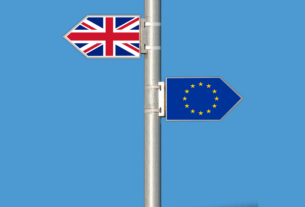Support NewsLeaf.com from as little as £1 by donating via PayPal. Click here to donate.
In football, things never last forever. Frank de Boer lost his job at Crystal Palace after just four Premier League matches and 77 days in charge; Sam Allardyce lasted just a single match as England boss, seeing the door after 67 days; Marcelo Bielsa lasted just two days and not a single game in charge of Lazio back in 2016. Yet, all of these still lasted longer than the European heavyweights’ breakaway dream for a European Super League (ESL) competition.
The whole episode is perhaps the strangest example of football owners and directors not understanding the emotion behind the business they are custodians of, treating it as any other business venture, and paying the price for that element of risk analyses that cannot be accounted for – passion.
Some of the clubs involved admitted as such when announcing their withdrawal. Arsenal telling fans that they ‘got it wrong’ and that the owners were seeking to safeguard the club’s financial future by entering a competition that promised a £300m bung to each of the permanent members. Financially sound yes, but the owners and directors failed to see that fans care more about the integrity of football as a competition, than the balance sheets in its club boardrooms.
At the time the ESL was announced, many including Gary Lineker – and admittedly, myself – thought that the proposal was a bargaining move, giving the clubs greater sway in the restructure of the Champions League that UEFA voted through in the midst of the ESL scandal. In light of the collapse, this seems unlikely. Florentino Perez, the Real Madrid president and allegedly the main culprit behind the Super League, is now shouting into the void about the merits of the competition, whilst his fellow breakaway colleagues are facing the consequences from their club’s supporters.
Manchester United chairman, Ed Woodward, is already out – though with a 9-month notice period, it is possible he was planning an exit in the near future anyway. Rumours are rife that Juventus chief, Andrea Agnelli is out too, and calls for the heads of Arsenal’s Stan Kroenke and Liverpool’s John Henry, have never been louder.
In the aftermath of the biggest collapse in European football since PSG capitulated at the Nou Camp in 2017 – throwing a 4-0 lead away to lose 6-5 on aggregate – the suggestion is that the tournament was a very real proposal and that prime minister Boris Johnson’s swift and aggressive action spooked the English teams into pulling out; the other dominoes fell in unison.
It is the actions of the prime minister that many are considering the reason for the capitulation of the proposal, with Johnson’s promise of a ‘legislation bomb’ to back up the FA and Premier League’s threats of expulsion catching the premier league clubs by surprise. This combined with at least one of the clubs already being unsure of the proposal (reportedly either Chelsea or Manchester City) led the first domino to fall.
The actions of fans were also no doubt significant, with Chelsea players having it out with the club’s technical director, and former legendary goalkeeper, Petr Cech, before the clubs 0-0 draw to Brighton and Hove Albion.
Whilst the episode is far from done, and many more heads are likely to roll, the collapse of the Super League is potentially a watershed moment for football. With UEFA proposals passed during the turmoil, changing the Champions League from a 32 team to 38 team tournament and introducing a coefficient to ensure some ‘big clubs’ qualify each year. The fan reaction will undoubtedly tell UEFA that this is unpopular and there are already rumblings that this could be reversed in the face of opposition.
Boris Johnson’s foray into football was a victory for the prime minister – succeeding where David Cameron failed, after once forgetting which claret and blue team he supported and crying his love of West Ham at a campaign stop, despite claiming to be a long running Aston Villa fan. However, it seems like he has had a taste for the power of football and sees a ‘British Super League’ allowing Scottish clubs to compete in the English football pyramid, as a way of saving the Union, in the wake of growing support for the pro-Scottish independence movement under his tenure.
Although unlikely due to the asymmetrical financial power in the English and Scottish games, there does still appear to be a significant appetite for change, both in Westminster and amongst English fans. The government supposedly want to introduce a German-style 50+1 rule which would give fans greater say in how their club is run, whilst fans see it as an opportunity to take on the growing commercialisation of the sport, often making it inaccessible to fans.
Where Champions League nights used to be Freeview on ITV, fans have had to start shelling out for multiple paid TV subscriptions with games split across SkySports and BT Sport, which can cost upwards of £100 per month, whilst ticket prices are average at £32, but can rocket to over £90 to watch some of those ‘big six’ who took part in the failed coup on European football.
Also read:
- BTS achieve two more World Records with their record breaking song “Dynamite”
- ‘Film Out’ by BTS is the most famous Music video in the World
- Gigi Hadid donates to Four different organisations as part of the the Black Lives Matter campaign
The Coronavirus pandemic has showed that whilst revenues are down, clubs are still able to stay afloat without matchday revenue and that the cost of watching football is unsustainable, not for the clubs, but for the people who watch their teams every week – what the ESL called ‘legacy fans’.
Whilst football is ultimately a business and matchday revenue is a significant part of clubs’ turnover, it is clear that the fans will only be pushed so far. There is a growing appetite for more wholesale change in light of the failed attempt to commercialise football further and a sense that fans now have the bit between their teeth and hold all the power over the future of football.
Whether they will utilise this power to increase their control in the long run remains to be seen, but the dramatic foray of the ESL proved that football is more than just a business venture, and whilst nothing last forever, fans’ devotion to the integrity of competition above all else, might come close.
_____________________________________________________________________________

Calum Paton is a History and Politics graduate from the University of Warwick and he is currently studying a MA at the University of Law. His writing predominantly focuses on American and British politics. Twitter: @Paton_Calum




